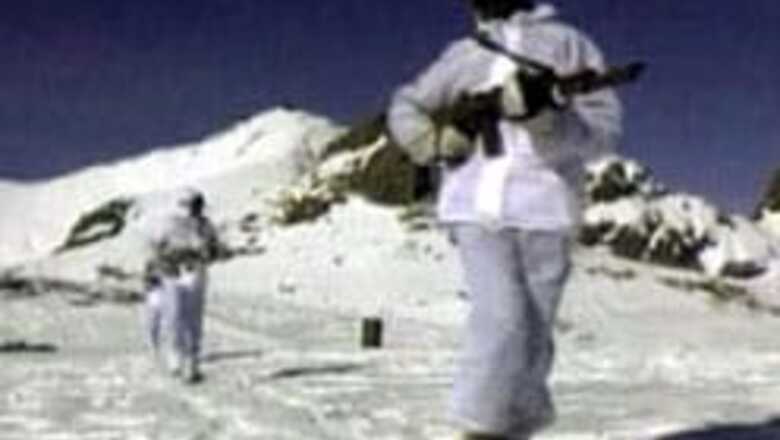
views
New Delhi: "Siachen is weeping, tomorrow the world will cry," a WWF study, published in an Islamabad daily The News, say.
Siachen glacier has been melting alarmingly more due to military activity of India and Pakistan than global warming, the study has said.
The extraordinary melting of Siachen and other major tributary glaciers is caused by human activity and is not due to natural changes, it said.
It has not only led to formations of glacial lakes and snow hole, but is responsible for destructive snow avalanches on both side of the Saltoro ridge.
The study was conducted by Arshad H Abbasi, a consultant for the World Wide Fund for Nature (WWF).
Siachen is the longest glacier in the non-polar regions from where the Nubara river originates and is a source of the Indus river in Pakistan which caters to 75 per cent of its irrigational requirements.
Another study conducted by Pakistan's Ministry of Water and Power confirmed the decline of cold temperatures in Siachen.
Pakistan Meteorological Department on November 25 last year informed the government that the Himalayan glaciers, particularly Siachen, have been receding for the last 30 years, with losses accelerating to alarming levels in the past decade.
The studies reportedly pointed out that during the last two decades, the melting of Siachen glacier has now been bracketed amongst the fastest in the world. Its retreat is evident from the snout (base of the glacier) and through the continuous thinning of ice along its entire length.
Siachen, along with several other major tributary glaciers, reduced their volume by 35 per cent during the last twenty years and retreating at the rate of 110 metres per year.
The thinning of the glacier can also be seen when satellite images taken in different years are compared, the report said.
Hydrological analyses too are substantiating this glacier melt. A study on temperature trends of high altitude stations in this region shows temperature is increasing at the rate of 0.20 degrees centigrade annually.
India and Pakistan are currently engaged in intense negotiations over withdrawal troops. The agreement was stalled over differences on authentication of troop positions of both the sides.




















Comments
0 comment